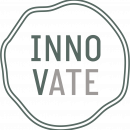GEM4GF

CHALLENGE
Controlling the electricity use and cost for water pumps and cold warehouses is a crucial task for vegetable farmers in Eastern Austria. Electricity costs often make up a large portion of operating costs for vegetable farmers and rising temperatures require high-consuming irrigation systems more frequently. More and more farmers have started to use solar photovoltaic (PV) systems to generate their own electricity instead of using gas-powered pumps or getting electricity from the grid for cold warehouses. However, often it is not clear how to best use the produced electricity and how much electricity a solar PV system can produce.
AIM
The GEM4GF pilot aims at designing, installing, and operating an energy management and steering system within the energy community of vegetable farmers in Lassee. In a future scenario, Mr. Paul Weiss (the head of the Lassee cooperative) can at any time via a web-based solution, or similar, keep an overview of current energy production of PV systems at irrigation pumps, houses or cooled warehouses and gets a recommendation on when to turn on irrigation pumps and when to turn down cooled warehouses to optimize consumption from own PV production.
HOW
In an initial step, the current available PV systems and their production are modelled. As an option, additional PV systems and their consumption profile are proposed. In a second step existing weather data forecasts are used to predict own PV production. As a third step this production is mapped with the demand and flexibility of cooled warehouses, irrigation pumps and houses. The demand and production are measured using existing smart meter devices. Electricity prices are taken from the existing Austrian Power Grid API. Now the energy optimization starts, and an intelligent algorithm uses past and current consumption data to propose a shift peak demands (e.g., irrigation pumps) to times of low electricity costs or proposes to cool the warehouse when own PV production is strong. A first prototype based on smart city districts already exist here http://nano-it.azurewebsites.net/scenarios-api/ and will be used to integrate the farmers use case.
BENEFIT
The main benefit will be delivered to the Lassee farmer collectives:
- by increasing the share of electricity that they consume from their own PV (decreasing the amount of surplus electricity produced that they cannot use)
- by reducing their electricity bill as they benefit from wholesale electricity market price fluctuation and arbitrage
- more energy independence from electricity market prices
- Strengthened local community and north star for other communities to save money and drive the energy transition
These learnings can be beneficial to other farmer collectives.
Open Call #2
FOCUS: Employing DEMETER methodologies and technologies, addressing clear farmer needs, with particular focus on EU geographic regions not currently represented within DEMETER pilots
LOCATION

Lasse Marktgemeinde, in Marchfeld, Austria.
PARTNERS



To read more about our open call
Successful Open call #2 pilot projects:
5 pilots were selected to join the DEMETER project.
CYPRUSAVES
Tools for water-saving and field management of Cypriot vineyards
CYPRUSAVES aims to address current and future water shortage and agricultural environment protection through sustainable manage of soil, nutrients, and pesticide use.
HARVESTNOW
Determine optimal harvest time window for hemp fields
The aim of the pilot is to help the huge potential of flax to be fully used, by helping the farmers in determining the best time window to harvest a specific field of hemp.
GEM4GF
Green energy management for green farms
Controlling the electricity use and cost for water pumps and cold warehouses is a crucial task for vegetable farmers in Eastern Austria. Electricity costs often make up a large portion of operating costs
for vegetable farmers.
PENFA
Pesticide Environmental Fate Analysis
The challenge of PENFA project is to support decision making on pesticide use among agricultural producers, through the identification of the plants’ response to environmental stress conditions that affect pesticide breakdown
HEMS
Herbicide Efficacy Analytic System for Sustainable Weed Control
HEMS aim to empower farmers by providing them with insights for a more sustainable and responsible use of herbicides. HEMS proposes a low-cost, and easy-to-adopt internet of things (IoT) system


